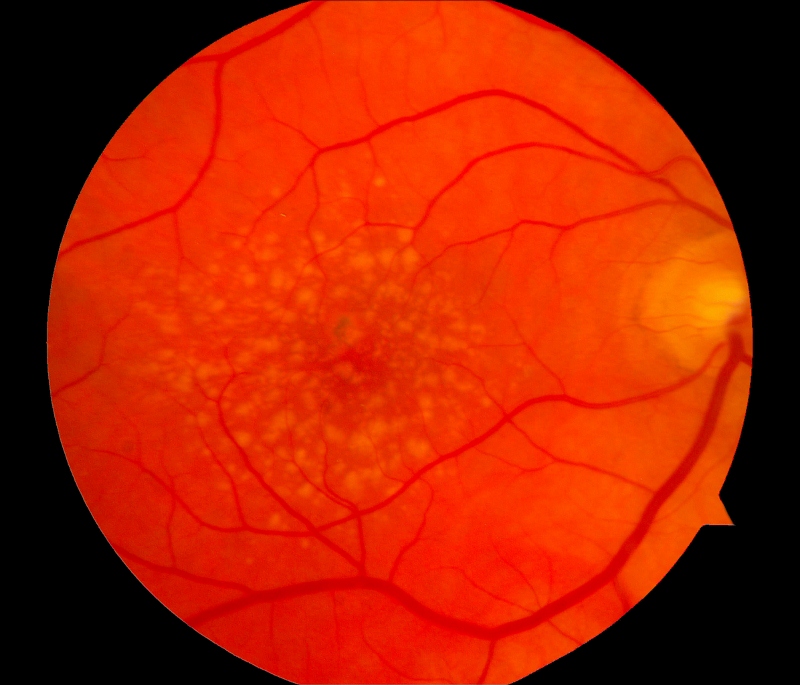Taking omega-3 fatty acid supplements does not slow the progression of age-related macular degeneration, a newly published study finds. However, some people may benefit from taking lutein and zeaxanthin.

Media contact: Tom Hughes, (919) 966-6047, tahughes@unch.unc.edu
Thursday, May 9, 2013
CHAPEL HILL, N.C. – A large new study finds that taking omega-3 fatty acid supplements has no effect on slowing the progression of age-related macular degeneration (AMD).
However, for people with low levels of lutein or zeaxanthin in their diets, supplementation with lutein and zeaxanthin may slow the progression of AMD, the study found.
Four researchers in the Department of Ophthalmology in the University of North Carolina School of Medicine contributed to the Age-related Eye Disease Study (AREDS) 2. Results from AREDS 2 were published online May 5 in the Journal of the American Medical Association.
“Many patients ask whether they should be taking lutein and omega-3 fatty acids for their age-related macular degeneration (AMD),” said Odette Houghton, MD, associate professor and one of the UNC researchers. The others were Seema Garg, MD, PhD, Maurice B. Landers III, MD and Travis M. Meredith, MD, chair emeritus of the Department of Ophthalmology.
“The AREDS 2 results indicate that if you have low levels of lutein or zeaxanthin in your diet, or if you take the original AREDS vitamins without beta-carotene, then supplementation with lutein and zeaxanthin may slow the progression of AMD. However, omega-3 fatty acids appear to have no beneficial or harmful effect on AMD,” Houghton said.
The AREDS2 study suggests that lutein and zeaxanthine are safer alternatives to beta-carotene in those people who have a history of smoking. There was a higher incidence of lung cancer in participants that had a history of smoking and who took AREDS supplements with beta-carotene.
“We have no control over some of the major risk factors for the advancement of AMD, such as age and family history,” Houghton said. “Regular dilated eye exams, avoidance of smoking and taking AREDS2 supplements when indicated are ways we may be able to reduce the risk of blindness from AMD.”
However, the AREDS supplements have only been shown to be effective in people who already have an intermediate stage of AMD. These supplements do not benefit people who have no AMD or mild AMD. A dilated eye exam by an eye care provider is the only way to detect AMD, Houghton said.
The American Academy of Ophthalmology recommends that adults get a baseline eye disease screening at age 40. The necessary interval for follow-up exams can be based on the results of this screening. Everyone age 65 and over should have complete eye exams every one to two years.
